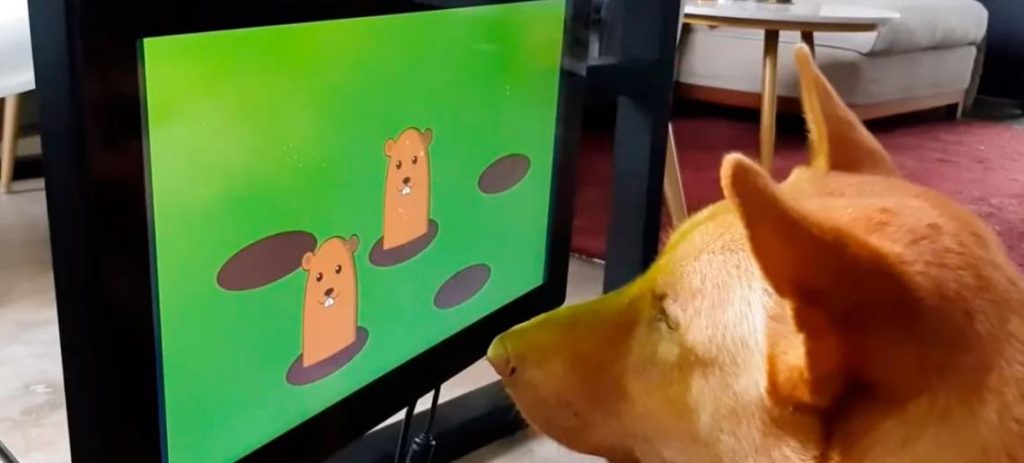
A U.K.-based startup called Joipaw is serious about making video games for dogs.
Why it matters: What might sound like a joke is actually a project that could have health benefits for dogs’ brains.
What’s happening: Joipaw’s games, which are still being prototyped, run on a custom saliva-resistant touch-screen console that the canine competitors play with their snouts.
- Games include a whack-a-mole challenge and a test to see if the doggie gamer can pick which side of an image contains more bubbles.
- When the dogs succeed, the console dispenses treats.
- A motion-sensitive tracker on the dog’s collar may also allow for additional control of some games.
Between the lines: Joipaw co-founder Dersim Avdar is a lifelong gamer and initially pondered the dog game concept as a way to keep his and his wife’s mixed-breed dog Kawet occupied when their particularly active pet wanted more attention than they could give.
- Avdar soon realized the idea might have deeper potential to aid dogs’ health.
- He read a 2017 study from several European researchers that tested simple touch-screen games on nearly 300 dogs (and 20 wolves) and found potential cognitive benefits for dogs with aging brains.
- “I’m taking the torch that these researchers lit and bringing it further,” Avdar tells Axios.
- He notes that Joipaw’s games are not meant to be a replacement for spending time with your dog.
Game design for dogs: Avdar’s dog games start off more simply than human games do, and it takes more coaxing to get dogs to start playing.
- While the earliest stages of the whack-a-mole game display a single critter, getting the dog’s attention takes putting peanut butter on the screen.
- In tests with nearly two dozen dogs, “the most difficult step” has been getting dogs to start playing without peanut butter on the screen, Avdar says, but, when they do, it’s “the magic moment where you see the light in their eyes.”
- After that, the idea is a mental workout for the dog, a potential half-hour challenge that can also tire a hard-thinking dog.
Help for dogs: Research into touch-screen brain games for dogs is young but “very promising,” says Clara Mancini, a professor of animal-computer interaction at The Open University in the U.K. and science adviser to Joipaw.
- She believes video games can offer benefits that other puzzle dog toys can’t, because they can be designed to become progressively more difficult.





























